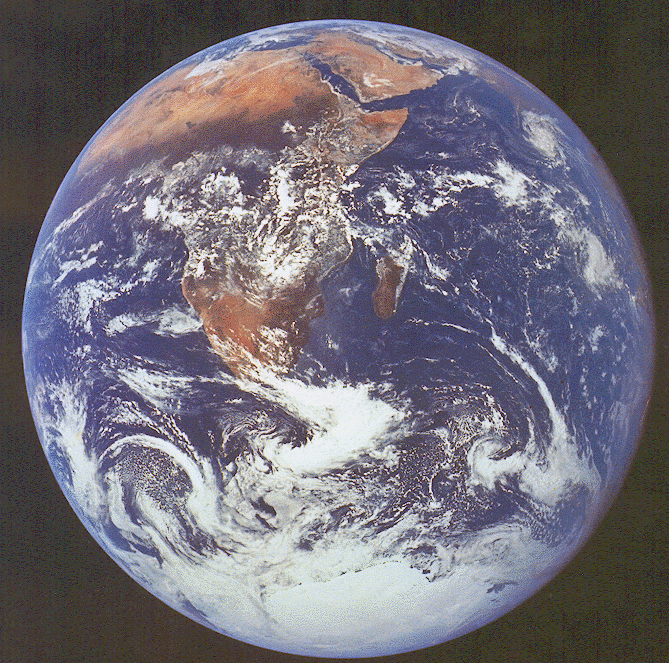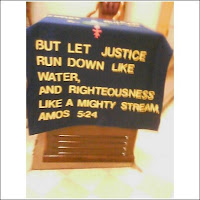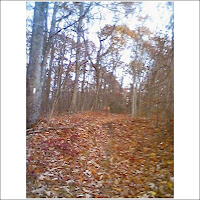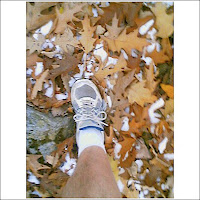I woke up before everyone else in the house this morning, thanks to Gracie, our youngest Schnauzer. I started the coffee pot and then started looking for something to read, having already devoured the latest issue of The Nation yesterday morning. I remembered packing some books among the pots and pans that have traveled with me, so I dug around in the garage and found The Island of Lost Maps: A True Story of Cartographic Crime by Miles Harvey  that had been living in the still-to-be-read pile that stayed in the kitchen in our former home. I poured my coffee and opened the book. I made it to the end of the introduction when I found my writing prompt for the day and set it aside to turn to my MacBook:
that had been living in the still-to-be-read pile that stayed in the kitchen in our former home. I poured my coffee and opened the book. I made it to the end of the introduction when I found my writing prompt for the day and set it aside to turn to my MacBook:
Filling in a life, it turned out, was like filling in a map, and my search for Gilbert Bland soon transformed from an investigation into an adventure. (xxii)
In a world where we can dive into Google Earth and see most anything from space, the idea that our known world was been “one of the dark places,” as Marlowe sets out at the beginning of Heart of Darkness, is something we let quickly fall out of our consciousness. The closest we get these days, I suppose, is gazing into the images of deep space Hubble sends back to us, leaving us to make the same sort of conjectures as those of people like Gerard Mercator’s 1569 image of what he thought made up our planet. Harvey describes it:
Gazing at Mercator’s chart, I see a planet strikingly different from our own, a world full of blank spaces and
never-never lands. North America turns into an amorphous blog that reaches so far west it is almost joined to Asia at the hip. South America has an unaccountable protrusion from its southwestern shores, a topographic tail feather that makes the continent look something like a giant waterfowl. This beast is, in turn, perched upon a peculiar nest – a huge polar landmass, many times the size of present-day Antarctica. Known as the Great Southern Continent or the Unknown Southern Land (or, to more optimistic cartographers, the Country Not Yet Discovered), it was a place ancient geographers had dreamed up to complement their belief that the Earth was perfectly symmetrical.
The inclination to draw the map and then go exploring seems to be deeply rooted in our human nature; we do our best work, perhaps, in pencil, eraser at the ready. Our need for maps, in a more metaphorical sense, speaks to our need for certainty, as if life were some sort of cosmic mall (God forbid!) and we stand in need of the diagram with the “X” and the arrow that says, “You are here.”
Harvey’s book reminded me of another, this one a novel: A Mapmaker’s Dream: The Meditations of Fra Mauro, Cartographer to the Court of Venice  by James Cowan. Mauro is a monk who sets out to draw a map of the world without ever leaving his cell. He does so by relying on travelers and adventurers who come and tell him what they saw and experienced. His world, if you will, is overturned when he meets a Muslim mapmaker who is drawing the world from the perspective of those who come and talk to him.
by James Cowan. Mauro is a monk who sets out to draw a map of the world without ever leaving his cell. He does so by relying on travelers and adventurers who come and tell him what they saw and experienced. His world, if you will, is overturned when he meets a Muslim mapmaker who is drawing the world from the perspective of those who come and talk to him.
Same world, different maps.
Where Harvey’s words took me first, however, was back to the conversation around the table Thursday night as Ginger and I sat and talked with all of our parents. When I read, “Filling in a life, it turned out, was like filling in a map,” I saw my father sitting at the end of the small table in the kitchen telling stories of his adolescence I had never heard, or at least did not remember. His words called me to go back and redraw my map of him, filling in some of the dark areas I had, until now, filled in based on my own assumptions. I also had a chance to describe what it was like to live with diagnosed depression over these last seven years in a way I had never been able to talk to them in the past, giving them the chance, I suppose, to do a little corrective cartography of their own.
I haven’t lived in the same town as my parents in over thirty years. I know a great deal about them and we talk regularly, but I don’t know how they live on a daily basis, or who their friends are, save a few who have been around for many, many years. I don’t know most of the books they read or the places they eat, what they talk about over dinner together or what they do for fun, beyond what I remember about them from the days when I did see them daily or what they tell me when we talk in our couple of hours of phone conversation each week.
My parents are my example here because the scene around the supper table is what set me to thinking. In most any arena in our lives, I need to be reminded my maps need revising. When I was teaching high school English, one of my colleagues made a comment about one of the students he was struggling to reach. The student was not making it easy for him to do so. The teacher, in frustration, was ready to write him off. I knew the kid from church youth group and was able to fill in a few of the dark places in my colleague’s map of the kid. “What I have to work to remember,” I said, “is I see these kids for forty-five minutes a day, five days a week, on my turf and working on my agenda. I’m fooling myself if I think I know who they are based on that little slice of life we share together.”
“Faith,” says Frederick Buechner, “is a journey without maps.”
What I have always taken from his words is God calls us to a life of trust rather than certainty. There is no way to nail this thing down, to find the “X,” to know for sure where we are headed next, other than, like Jesus, we have come from God and we are going to God. I can do pretty well with that when it comes to living out my minister to teacher to minister to chef life story (that’s the abridged version), yet I think I’m less flexible when it comes to mapping those around me. I can far too easily label people and use them as road markers to help me stay among those I agree with most easily. Like Fra Mauro, I have mapped too many folks based on what someone else has told me and made assumptions far beyond what is right or fair.
What I heard in my dad’s story the other night was not as much something new as it was something more. At this point in our lives, we’re both pretty good at letting each other be who we are and sharing both a deep sense of affection and appreciation. He just filled in a little more of his map and gave me room to do the same.
Now that’s something to be thankful for.
Peace,
Milton
















